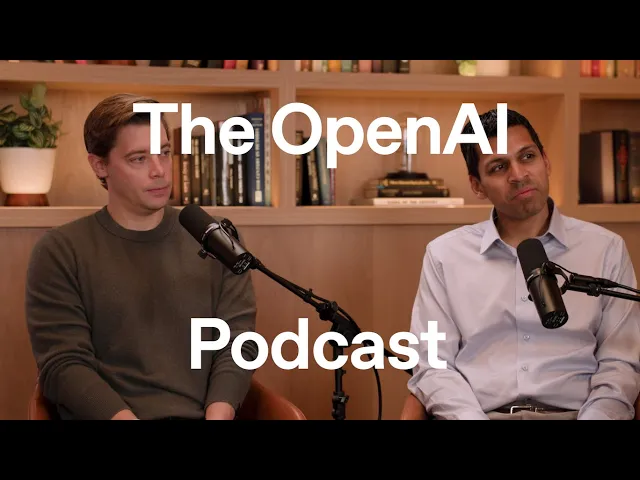Brad Lightcap and Ronnie Chatterji on jobs, growth, and the AI economy — the OpenAI Podcast Ep. 3

AI's economic promise needs policy guardrails
In a world where technological advancement seems to outpace our ability to comprehend its implications, the conversation between OpenAI COO Brad Lightcap and White House economic advisor Ronnie Chatterji offers a refreshing blend of optimism and pragmatism. Their wide-ranging discussion on the OpenAI Podcast explores how artificial intelligence might reshape our economic landscape while acknowledging the very real challenges this transformation presents.
Key Points
-
AI presents both tremendous economic opportunity and significant transition challenges that require thoughtful policy approaches balancing innovation with worker protection.
-
The current AI boom differs from previous tech revolutions in its potential to augment professional knowledge work rather than primarily displacing physical or routine labor.
-
Effective governance requires collaboration between government, industry, and academia to develop standards, safety mechanisms, and educational pathways that maximize benefits while minimizing harms.
The New Social Contract for AI
The most compelling insight from this conversation is Chatterji's call for a new social contract around AI—one that acknowledges technology's benefits while ensuring its rewards are broadly shared. This isn't just an academic concept but a practical framework for navigating what could be the most significant economic transition since the Industrial Revolution.
What makes this particularly important is the timing. Unlike previous technological shifts where policy responses came after widespread disruption, we have an opportunity to establish guardrails before AI's most transformative applications become ubiquitous. As Lightcap notes, while productivity gains from AI could add trillions to global GDP, these benefits will mean little if they exacerbate inequality or leave vulnerable workers behind.
The stakes couldn't be higher. Without thoughtful policy interventions, AI could accelerate existing trends toward labor market polarization—where middle-skill jobs disappear while demand increases for both high-skilled technical roles and low-paying service jobs. This "hollowing out" of the middle class would undermine social cohesion and economic mobility.
Learning from History's Lessons
One perspective notably absent from the conversation is the historical context of previous technological transitions. The mechanization of agriculture in the early 20th century offers instructive parallels to our current moment. In 1900, approximately 40% of Americans worked on farms; by 2000, that figure had fallen
Recent Videos
How To Earn MONEY With Images (No Bullsh*t)
Smart earnings from your image collection In today's digital economy, passive income streams have become increasingly accessible to creators with various skill sets. A recent YouTube video cuts through the hype to explore legitimate ways photographers, designers, and even casual smartphone users can monetize their image collections. The strategies outlined don't rely on unrealistic promises or complicated schemes—instead, they focus on established marketplaces with proven revenue potential for image creators. Key Points Stock photography platforms like Shutterstock, Adobe Stock, and Getty Images remain viable income sources when you understand their specific requirements and optimize your submissions accordingly. Specialized marketplaces focusing...
Oct 3, 2025New SHAPE SHIFTING AI Robot Is Freaking People Out
Liquid robots will change everything In the quiet labs of Carnegie Mellon University, scientists have created something that feels plucked from science fiction—a magnetic slime robot that can transform between liquid and solid states, slipping through tight spaces before reassembling on the other side. This technology, showcased in a recent YouTube video, represents a significant leap beyond traditional robotics into a realm where machines mimic not just animal movements, but their fundamental physical properties. While the internet might be buzzing with dystopian concerns about "shape-shifting terminators," the reality offers far more promising applications that could revolutionize medicine, rescue operations, and...
Oct 3, 2025How To Do Homeless AI Tiktok Trend (Tiktok Homeless AI Tutorial)
AI homeless trend raises ethical concerns In an era where social media trends evolve faster than we can comprehend them, TikTok's "homeless AI" trend has sparked both creative engagement and serious ethical questions. The trend, which involves using AI to transform ordinary photos into images depicting homelessness, has rapidly gained traction across the platform, with creators eagerly jumping on board to showcase their digital transformations. While the technical process is relatively straightforward, the implications of digitally "becoming homeless" for entertainment deserve careful consideration. The video tutorial provides a step-by-step guide on creating these AI-generated images, explaining how users can transform...
